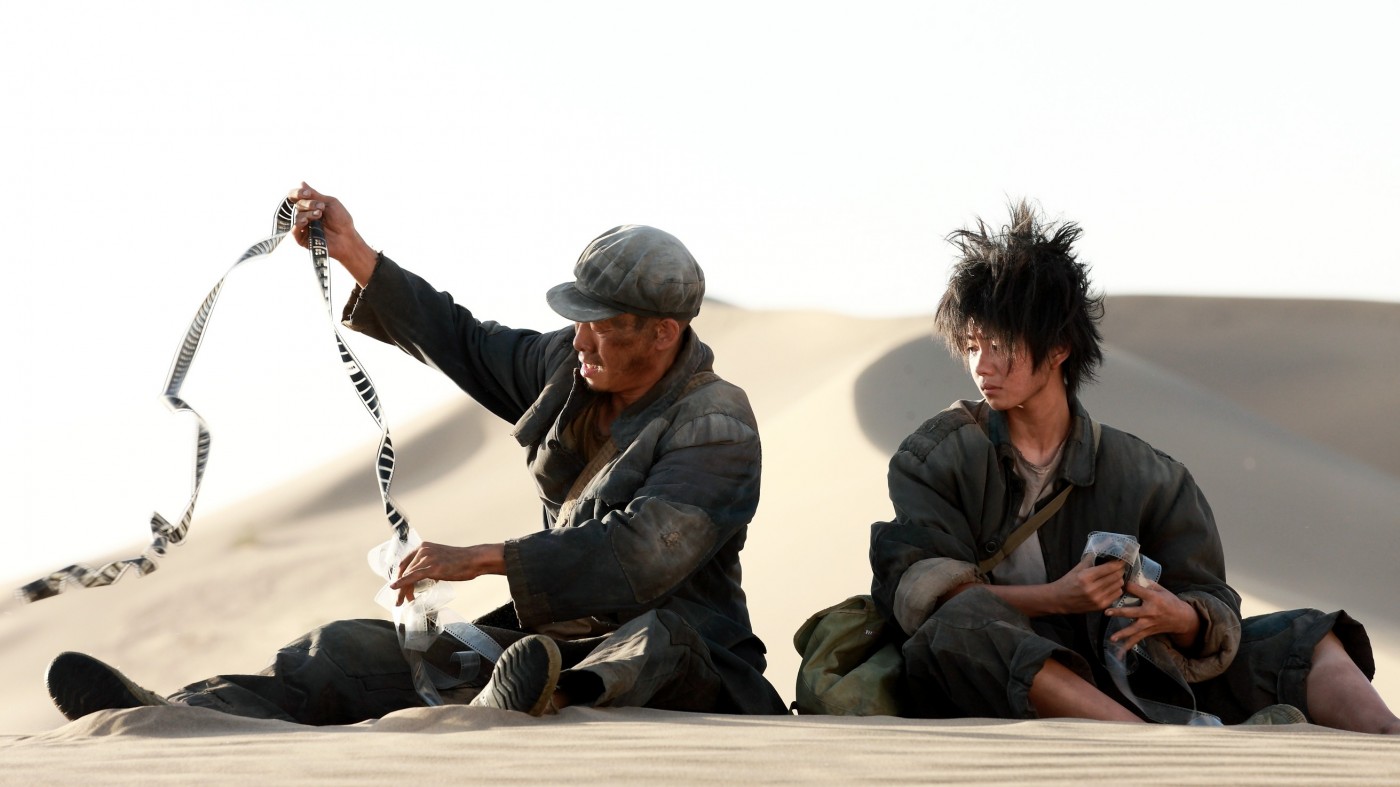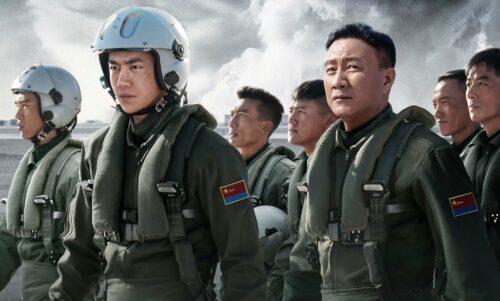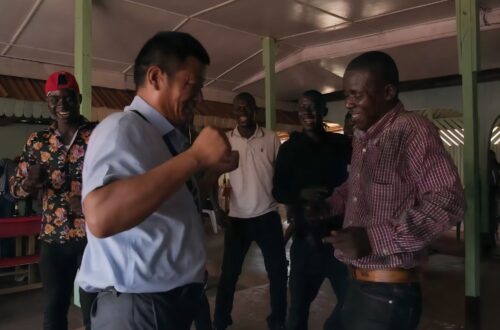One Second: Zhang Yimou’s ‘love letter to cinema’
Censored and pulled from the Berlin International Film Festival in 2019, Zhang Yimou's "One Second" recently closed the Toronto International Film Festival to rave reviews.

One Second, a period piece from director Zhāng Yìmóu 张艺谋, closed the Toronto International Film Festival this past Saturday. Set in a small outpost in the Gobi Desert during the Cultural Revolution, a mysterious drifter played by Zhāng Yì 张译 chases a street urchin (Liú Hàocún 刘浩存) to recover a film reel that she has stolen. The reel was supposed to be taken to the local projectionist, “Mr. Movie” (Fàn Wěi 范伟), who commands respect and importance due to his access to movies. Each character wants the reel for a specific reason.
One Second’s weirdly ambivalent political backdrop is the suspected reason for the film being pulled from the Berlin International Film Festival in February 2019 (though “technical difficulties” rather than censorship was the given reason). With some light snips, One Second found a Chinese release last November. Its $10.6 million opening-weekend haul was respectable, finishing only slightly behind the crime drama Caught in Time. The Toronto International Film Festival allowed for a quieter showing — though it certainly didn’t dampen viewers’ enthusiasm. One Second has been called “easily one of the best films” Zhang has made, and a “direct and heartfelt valentine to the medium” of filmmaking.
China news, weekly.
Sign up for The China Project’s weekly newsletter, our free roundup of the most important China stories.
Ironically, the characters in One Second do not wax poetic about the abstract concept of film the same way as the critics who’ve been singing the film’s praises. The drifter and the orphan are not inspired by the content of the reel they tussle over — the propaganda feature Heroic Sons and Daughters — despite the constant exhortations by Mr. Movie as to the value of the movie’s patriotic messaging. As it happens, their obsession with the reel is due to their love of family. Someone very close to the drifter appears in the newsreel that precedes the feature — for only one second. The orphan is after film’s celluloid as raw material for a household object — one that I won’t reveal, as it is a spoiler, and One Second has a compelling mini-mystery as the drifter tries to guess her motivation. The reel is seemingly useless to anyone aside from the projectionist.
This also goes for the local citizens of the Gobi Desert community who have congregated for movie night. They love movies, but as Mr. Movie notes, they’ll watch damn near anything. Much of this is just due to sheer scarcity. It’ll be weeks before the townspeople get access to new flicks. But the uniqueness of going to the movies has created something greater than any individual film. Imagine living in a town with no other entertainment, where entire excursions are planned around screenings. Movie night is a huge community event in this Gobi outpost because it’s the only chance for the people to access the outside world. They convene not out of love for film, but community.
This is a brilliant bit of meta-commentary from One Second: Movies themselves have no power except that which we ascribe to them. Which brings me back to the Chinese box office. Mainstream Chinese films are not held in high esteem by international critics. Yet in the Chinese market, it’s not the movies themselves that matter, but how they speak to a greater community. Sentimental films like Hi, Mom and A Little Red Flower have done well because they tap into personal feelings of community and family. Chinese Doctors is fifth on the 2021 Chinese box office leaderboard as of this writing: the medical drama deals with the frontline doctors in Wuhan during the COVID-19 outbreak.
Movies like these are community events engaging with the modern zeitgeist. It’s easy to see their importance to the social fabric. By contrast, the very capitalist nature of Hollywood film is starting to become its downfall both at home and abroad. Instead of movies being designed around the social needs of people, American companies have been trying to craft fandoms that will accept their marketing hype uncritically. It worked, sort of, for a little while — but now it’s at a point of diminishing returns, and the industry’s future feels grim.
Zhang Yimou himself is no bystander to this trend. The director of the infamous and weird 2016 big-budget American/Chinese co-production The Great Wall was directly involved in American attempts to pander to the Chinese market. The critical and financial failure of The Great Wall no doubt bruised Zhang’s ego; One Second is his counterpunch, a wonderfully introspective look at just what film and the theatrical experience can do (or should be) for people.







